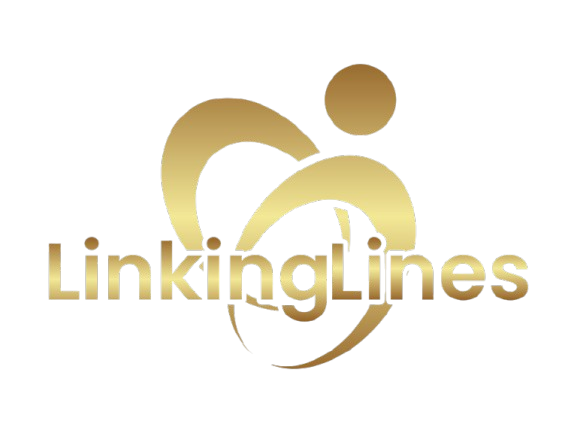Everyone’s talking about what to include in a CV, but do you know what not to include in a CV?
Yes, you’ve read it right! There are actually some things that you should not include in your CV. So, in this article, we’re going to tackle the old question of what not to include in a CV…. This is something that many jobseekers still find confusing so we decided to help out!
Let’s take a look back
CVs used to be long, boring documents that contained all sorts of information. From your nationality, date of birth, and marital status to your high school achievements and hobbies. Over time, as the population grew, the number of jobs grew, and also the number of applicants. This led to a major change in CV writing: some details are no longer required on a CV.
Fast forward to the modern age, some details are not only not required, but if the employer asks about them, it can be seen as discrimination!
So, let’s look into what not to include in a CV. Unfortunately, there are many details that are not required but can still be seen.
Photograph
No matter how good you look, you don’t need a photograph in your CV. That is, unless you are an actor, a TV personality or a model. Therefore, this falls in the category of “what not to include in a CV”.
Employers really shouldn’t be asking for photographs of candidates and if they do – research them thoroughly. Maybe something is off and there’s a reason why they’re still looking for a worker!
How you look in no way determines whether you can or can not do a good job. Therefore, it shouldn’t be presented to the potential employer and they shouldn’t really care about how you look. We’ve seen many CVs with photographs and some people go overboard. We’ve seen everything; from passport photographs to people performing a task (e.g. sitting behind a wheel or holding a brush). No matter how interesting your photo is, there’s no reason why it should be a part of your CV.
To conclude, your photograph is not going to tell the reader whether you’re qualified for the job. That is why it is considered a detail that is not required on your CV.
Marital Status & Family
Another important member of the “what not to include in a CV” category is your marital status & family information.
No one has the right to ask you about your marital status or the number of dependents. There is absolutely no reason why someone should know if you are single, in a relationship, or divorced. Or how many kids you have or if you plan to have kids. That has nothing to do with your career path, performance or motivation for the role.
Therefore, you do not have to disclose it on your CV. It might come up at an interview or sometimes when they hire you because it’s only human to talk about these things. If you feel uncomfortable when they mention this topic, you can even take legal action against the potential employer if they don’t hire you. To hire someone based on their marital status and/or the number of dependents is discrimination. Keep that in mind the next time you’re updating your CV and make sure to remove any mention of personal life.
Date of Birth & Nationality
Similarly to the reasoning behind the marital status & family, your age and nationality have nothing to do with your suitability for the role. Truthfully, the only exception here when it comes to nationality are roles that have to do with governments (be it national or local level).
For this reason, do not include your DOB nor nationality in your CV – those details are not required and this also falls in the “what not to include in a CV” category.
Personal Interests & Hobbies
The honorary member of the “what not to include in a CV” category is for sure the personal interests & hobbies section.
Why? Well, because areas of personal interests and hobbies are definitely details that are not required on a CV! There’s a simple logic behind this: the reader is only interested in your suitability for the role at this point. And they can’t read your suitability if you share that you like going to the gym and looking at the stars.
So, that being said, you do not need to disclose your personal interests & hobbies in your CV.
Cover letter is much fitter for the purpose.
However, bear in mind this can only be done if your hobby is like a freelancing gig that’s related to what you want to do next. For example, let’s say you’re a software engineer who manages their friends’ websites in your spare time. You can mention that in your cover letter. But if you’re an accountant who plays football in their spare time, this is not worth mentioning in your cover letter.
Achievements
Any type of awards or achievements that happened during your education shouldn’t be on your CV. The only exception would be if you recently graduated and you had nothing else to share with the recruiters.
Writing about your achievements is not the worst idea ever, but still, if you do decide to talk about achievements, make sure they are real achievements and not something that you’re proud of personally, but no one else understands.
If the latter is the case, then this also falls in the “what not to include in a CV” category.
References
When we’re talking about references, it is not such a big mistake as others that we listed. However, keep in mind that references are definitely details that are not required on your CV.
Why? Because you’re sharing contact information with tens of recruiters (depending on how many applications you send), and they don’t need it. And they don’t need it because of two reasons:
- They don’t have time to deep-dive into each candidate.
- You’re just at the beginning of your job search, so no one is going to call your former manager and ask about you at this stage. References should be shared when asked for, not before.
So, references are actually redundant in this very early stage of the recruitment and therefore, we’d list them in the “what not to include in a CV” category as well.
The Purpose of Your CV
Lastly, don’t forget that the purpose of your CV is to land you a job interview. As a consequence, you do not need to include any information that is not going to help your purpose. Depending on your situation, this includes irrelevant job positions and courses you’ve took and which have nothing in common with your area of professional interest. Therefore, it is extremely important you keep it clean and give the reader exactly what they need to know.
Remember, CV writing is a tiresome task, but it is so worth your time and effort! If you do it properly, it can literally change your life forever! We have written a detailed guide for CV writing that will help you get noticed – check it out here. Simply follow the advice outlined in it and get more replies to your job applications.
Also, you can browse our blog for more advice on CV writing and job search in general! If you need additional help, feel free to submit your CV for a free review or reach out and inquire about our CV and CL writing service.
[html_block id=”8293″]

















Leave a Reply